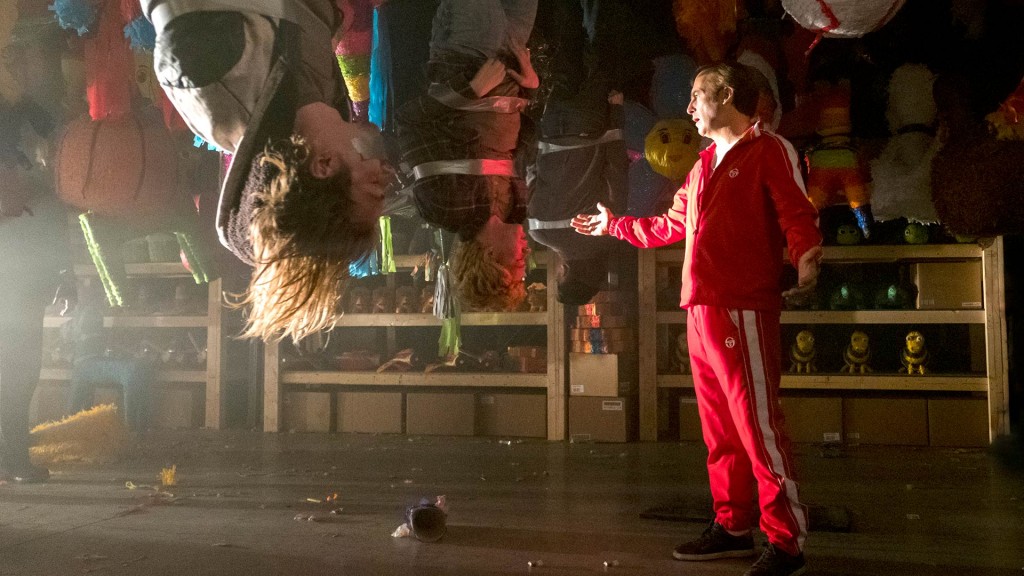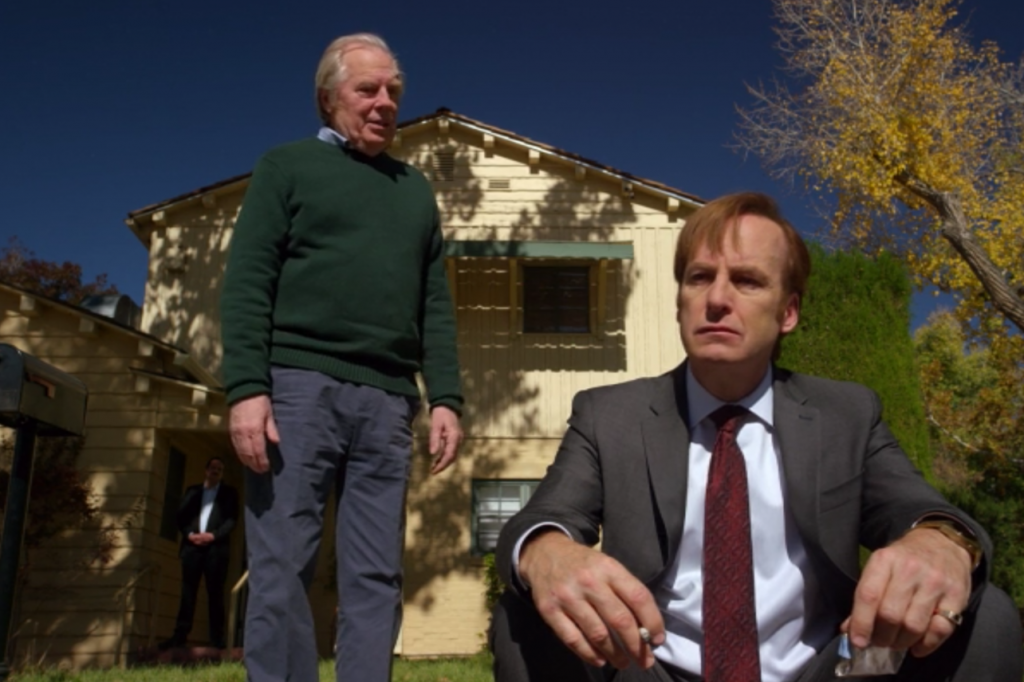-
Recent Posts
- Better Call Saul: There Are No Happy Endings between a “Rock and Hard Place”
- Black Widow Keeps It in the Family for Natasha’s Last Ride
- Loki Finds New Purpose in the Man behind the Mischief
- In its Debut, Star Wars: The Bad Batch Decides Whether to Obey or Rebel
- Nomadland: A Film Out of Time, For Our Times
Archives
Recent Comments
- Ed Clarke on Contact
- Matt on Why “The Frying Game” Is a Dark Horse Contender for The Simpsons’s Worst Episode Ever
- Lilly Dow on Contact
- Stacey on Veep’s Series Finale and the Hollowness of Getting What You Want
- Evan Jaocbs on Contact
Meta
Tag Archives: Jimmy McGill
Better Call Saul: The Slow Burn Threatens to Bring Down Jimmy and Kim in “Something Stupid”
I’ve known the evenings, mornings, and days alone,
I have measured out my life in Mesa Verde awards and burner phones.
With my sincerest apologies to T.S. Eliot, it’s amazing how Better Call Saul can move so slowly and then so quickly in the same season, without missing a beat. It’s hard to know exactly how much time has elapsed in the show so far, but this season picked up right where the last one left off and has, more or less, crept along in the aftermath of Chuck’s death and Hector’s “accident” ever since.
That is, until now. If the last episode stood out for how it seemed to set Jimmy and Kim on diverging trajectories, “Something Stupid” takes that idea up a notch, with a cold open set to the famed Sinatra melody that provides the episode’s title. The series taps into its unrivaled ability to craft montages, depicting the passage of time via unwrapped statuettes, filing cabinet labels, and holiday sale signs. But the show goes a step further with its formal creativity, using a well-placed split screen to show how both Kim and Jimmy are flourishing in their new lives, but also how those lives are slowly but surely pulling them further and further apart.
Better Call Saul Sets Jimmy and Kim on Different Paths in “Piñata”
Jimmy and Kim are on different paths; that’s been clear for a while now. But the cold open in “Piñata” makes it literal. The episode starts with a flashback to the halls of HHM, at a time when Jimmy is a gregarious mailroom clerk and Kim’s a precocious law student. Even then, the two share a rapport, but also have obvious differences.
Better Call Saul Veers Ever Closer to Breaking Bad in “Quite a Ride”
Better Call Saul has never been closer to Breaking Bad. That’s not just because this episode opens with this show’s first glimpse of our hero during the Walter White era. It’s not just because Gus Fring seems to nail down his plans for the facility that will one day become Heisenberg’s lab. And it’s not just because Jimmy visits The Dog House, the fast food restaurant and seedy hangout where Jesse Pinkman once sold his drug of choice.
It’s because “Quite a Ride” is about people who are almost peerless at what they do, unable to walk away from it, and the different directions those superlative skills take them. That was the larger story of Breaking Bad, a show devoted to a man who had an undeniable talent, but who could not let it go in the face of the money and long-awaited recognition he thought he was due, even when it came with a side of peril and human misery. Breaking Bad lived on the conflicted thrills of watching someone as talented as Walter White operate at the top of his game in a terrible industry, and earned its emotional resonance from the uncertain but foreboding sense of where those talents would lead him.
Better Call Saul: The Small Interactions that Cause Big Ripples in “Expenses”

One of the best qualities of The Sopranos was how it would frequently depict a character having a small but meaningful interaction with another person, and then show how that moment could change their emotional state or plant some idea in their head that would stick with them throughout the episode. Often, the character would then take out those feelings on someone entirely removed from the original incident. It was part of the show’s deft emotional calculus, that captured the way thoughts and feelings flit around in the background of one’s mind, popping up at unexpected times or in surprising ways.
As much as the aptly titled “Expenses” is devoted to the tough financial situation Jimmy McGill finds himself in while suspended from the practice of law, it’s also devoted to that same idea — that one interaction, one exchange with another person, can reframe how you feel about someone or something, in a way that carries with you and cannot be easily erased.
Better Call Saul: Whether Chuck McGill Loves his Brother in “Sunk Costs”
For a split-second, I believed him. I believed Chuck McGill when he told the Assistant District Attorney that his brother had a good heart, that Jimmy would never actually hurt him, and that maybe there was an easier way to end all of this unpleasantness. I thought that maybe Jimmy’s speech to his brother, uttered while sitting on the curb waiting for the cops to pick him up, had made an impression. Chuck might have remembered all that Jimmy has done for him, understood that his brother means well, and wanted to avoid selling him down the river.




